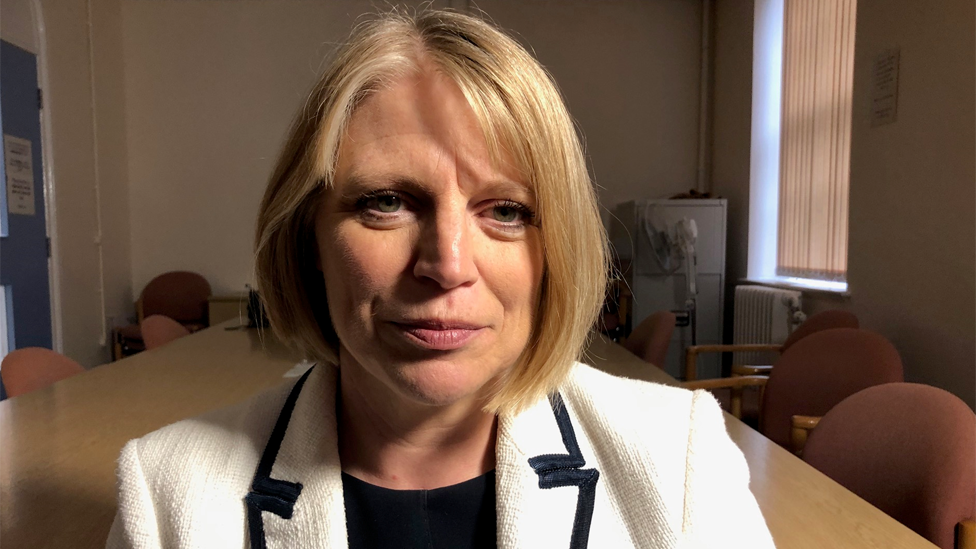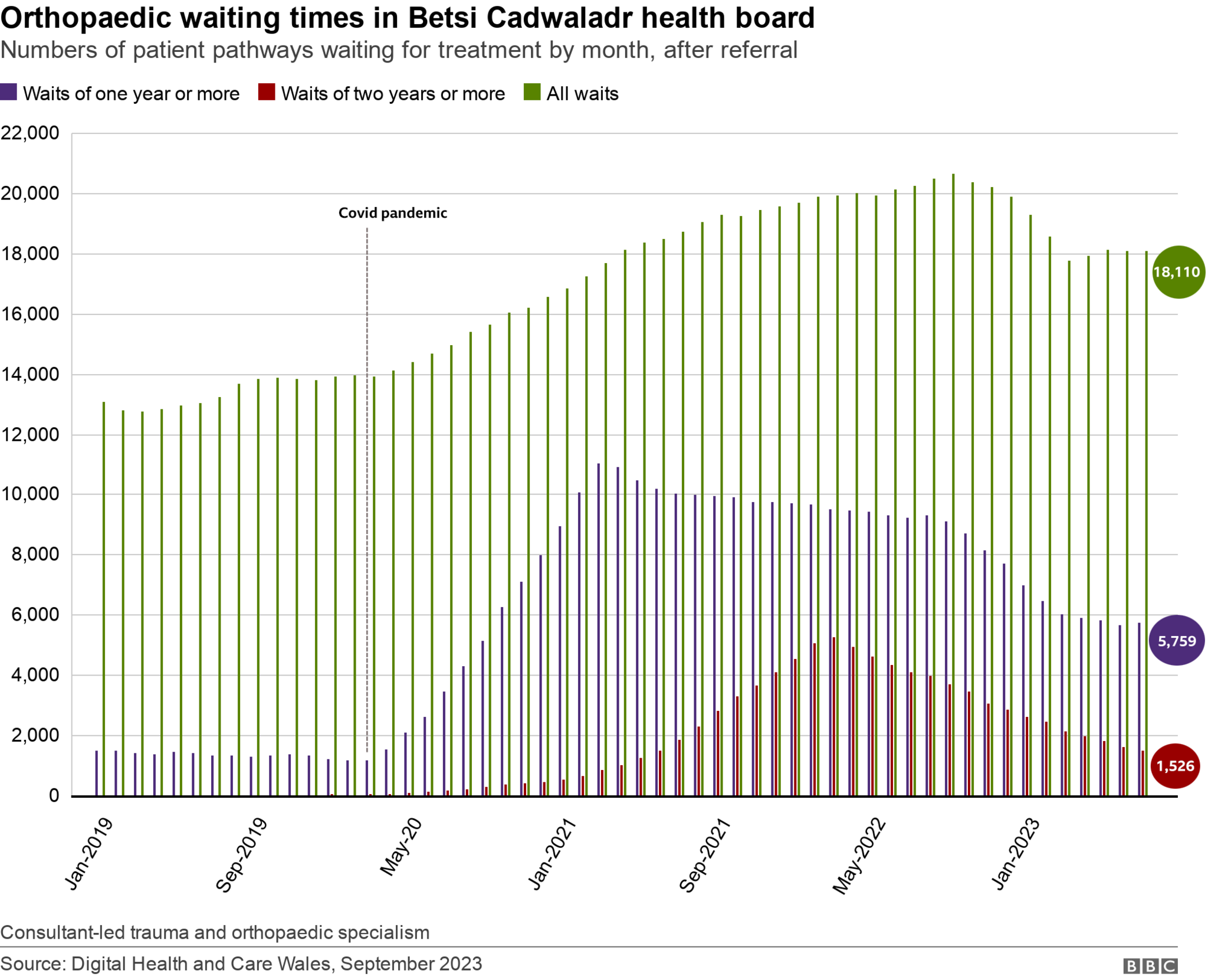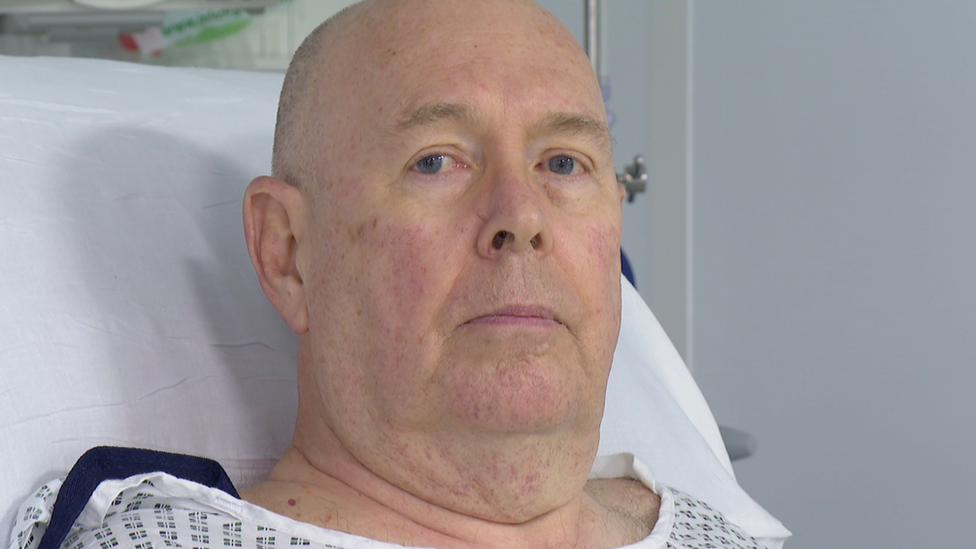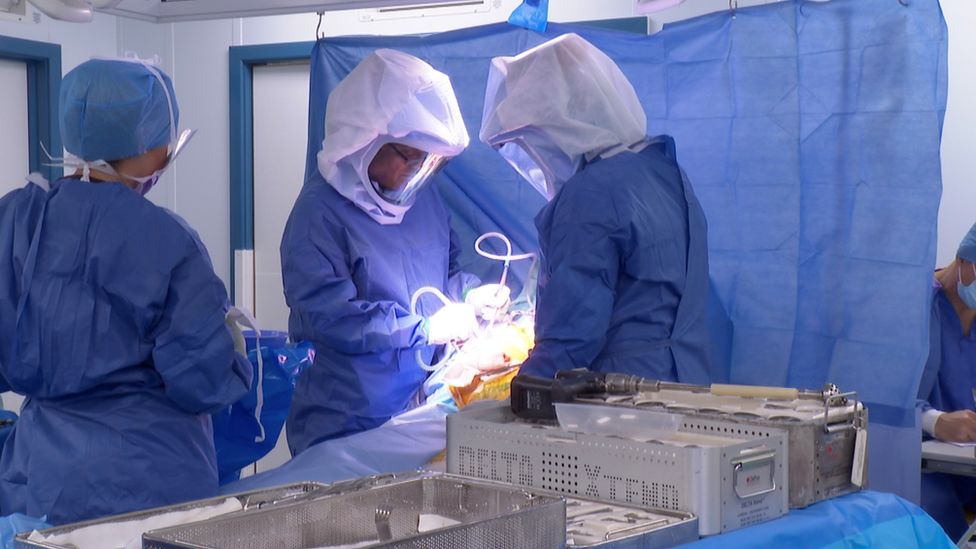NHS: Is Betsi Cadwaladr top job the toughest in Wales?
- Published

Carol Shillabeer took over as chief executive of Betsi Cadwaladr health board in May
"When I came here in my first week, somebody said to me 'I wonder what it's like to have Betsi on your CV'."
Carol Shillabeer knows she has taken on one of the toughest jobs in the NHS, if not the whole of Wales.
She became the temporary boss of Betsi Cadwaladr, Wales' biggest and most troubled health board, in May.
Ms Shillabeer said in order to remove "labels of a failing organisation, you really need to solve the core issues".
She was appointed after the Welsh government put Betsi into "special measures" for the second time in its history.
Eleven independent board members were forced to resign and, shortly after, Ms Shillabeer was drafted in from the neighbouring Powys health board.
So was it an SOS call from the Welsh government?
"What's clear is [they] just wanted some stability for the health board. I was only too happy to come - I've had the warmest welcome."

But a warm welcome does not mask the enormity of the challenges as the NHS in north Wales has been beset by patient safety failings, poor performance, staff shortages and governance issues for more than a decade.
This has resulted in a revolving door of senior leaders, with Ms Shillabeer being the eighth interim or permanent chief executive in 11 years.
There are other problems not unique to this health board too - waiting lists. More than 18,000 people are waiting for orthopaedic treatment.
But in-roads have been made into the large numbers waiting the longest, with 40% fewer now waiting more than a year, compared to summer last year.
The health board has made a dent by centralising some hip and knee procedures at Abergele Hospital in Conwy where surgery is less likely to be postponed than at bigger hospitals because it does not have the pressures of emergency care or A&E.
There are also occupational therapists and physiotherapists on tap immediately before and after surgery so patients are able to return home much more quickly - usually within a day.
If we improve length of stay and promote day case surgery we could probably increase throughput to 3,000 joints a year
Lead surgeon Bala Ramesh said: "We've made a commitment to get to around 40 joints [replaced or corrected] per week - that's 2,000 joints per year, Monday to Friday in standard working hours."
He believes, with further improvements, the hospital could probably increase this to 3,000.
Barry Hughes, 76, from Rhyl, Denbighshire, has just had knee replacement surgery after suffering for years with an old football injury.
He had been on the waiting list for about a year but got treated sooner than he expected.

Barry Hughes had found it very difficult to get around because of his worsening knee problems
"We hear all these horror stories but I've got no complaints whatsoever. I was expecting four or five years," he said.
Another recovering from knee surgery was retired milkman John Williams, 67, from Bethel, Gwynedd.
"I'll have been here two days less [than normal] - they'll get through the patients quickly, and get them off the waiting list. Everyone's been brilliant."
But Ms Shillabeer recognises that she has to change the minds of many more people.
"If you put Betsi Cadwaladr into any search engine what's going to come up is 'special measures', this problem, that problem. How nice would it be to change that dialogue?
"But to start removing those labels of a failing organisation, you really need to solve the core issues."

About 40 operations a week take place at the small Abergele Hospital in a bid to reduce orthopaedic waits
What are the problems at Betsi?
Waiting times: Betsi is consistently among the worst performers in Wales for waiting times for planned treatments and delays in A&E. Ms Shillabeer has promised more innovation and new ideas to make rapid improvements.
The health board also wants to establish a single "surgical hub", but this will mean some patients will have to travel further to be treated.
Vascular surgery: Patient safety concerns emerged after complicated vascular surgery was centralised at Glan Clwyd Hospital in 2019.
Ms Shillabeer has reviewed the papers relating to that move and reiterated the apology for failings. She concedes that it was not implemented appropriately, but believes it was the right thing to do.
Financial management: Police are still considering whether to investigate claims made in a leaked report about Betsi's finances.
Ms Shillabeer said she was being kept up to date with that review and hoped to be able to "put something that which is substantive into the public domain about those accounting issues" as well about what the health board has done to rectify it.
There is also a separate matter relating to the overpayment of a senior member of staff which the new boss accepts was a "clear and unacceptable breach of the rules" and she has asked for a review.
Budget pressures: Like other health boards Betsi Cadwaladr is expected to find significant financial savings, with a £134m deficit expected by next spring.
Ms Shillabeer said it felt "unprecedented" and she may need to save money by not filling vacancies in the short term.
Is it an impossible job?
She admits there is complexity and a history of the health board being in and out of special measures and believes it needs stability.
"There has been this revolving door and that doesn't always provide confidence for people to feel the organisation is going in a strong direction.
"My job is to start laying the foundations for the future."
Related topics
- Published21 September 2023

- Published13 September 2023

- Published15 August 2023
